In 1977, one of the first official decisions by the recently elected Prime Minister Menachem Begin was to accept into Israel 66 Vietnamese refugees who were fleeing war in their country. By 1979, Israel had received a total of about 400 Vietnamese refugees. In explaining the move, Begin said:
“We remembered, we never have forgotten, the boat with 900 Jews having left Germany in the last weeks before World War II…traveling from harbor to harbor, from country to country, crying out for refuge. They were refused…Therefore, it was natural that my first act as prime minister was to give those people a haven in the Land of Israel.”
Sadly, Prime Minister Benjamin Netanyahu and members of his government don’t seem driven by the same feelings of empathy that one of the ideological fathers of their political camp felt back in the late 1970s. Israel today hosts about 40,000 people from Sudan and Eritrea, considered refugees by most of the international community, who have not yet been given a proper legal status (in fact, the government insists on calling them “infiltrators”). Israel’s Supreme Court has halted a recent deportation attempt to Rwanda and Uganda, following an agreement between Israel and these countries that Rwanda and Uganda denied. Following that, Israel reached an agreement with the United Nations High Commission for Refugees (UNHCR) to resettle about half of these refugees to other third countries, with Israel absorbing the rest. Only a few hours after the agreement was announced, Netanyahu backtracked.
In unraveling the deal, Netanyahu puts Israel back at square one with regards to these migrants, leaving unchanged their unstable status. While Israel, a signatory of the 1951 Refugee Convention, has de-facto complied with the non-removal protection that UNHCR has requested, it has not universally given to these refugees a status that would entitle them with access to basic assistance (e.g. health care, social security, welfare) nor confer them with the right to work. It also does not exempt them from detention. An alternative for these migrants is to formally request asylum (by proving they have being individually persecuted in their home country), which if granted could give them a more permanent status. But the odds of approval are against them: fewer than 1 percent of such applications have been accepted by the Israeli government.
Yet, a good compromise is still possible: Israel can provide all Eritrean and Sudanese refugees with temporary protected status (TPS). This would allow them to remain in the country, work, and receive basic social benefits (in fact, a few of them who formally requested for asylum eventually received a similar temporal status). TPS does not have to result in permanent residences; authorities can review the TPS every so often and revoke it if it becomes safe for him or her to return home. A person’s TPS could be also conditional on keeping a clean criminal record.
TPS is widely used by many developed countries, including the United States, where it has been given to hundreds of thousands of people escaping conflict or natural disasters. For example, about 50,000 Haitians who fled following the 2010 earthquake have TPS, which is set to expire in mid-2019. To reduce the concentration of refugees in the south of Tel Aviv, the government could provide incentives to those who applied for TPS to temporarily relocate to different cities in the country according to some allocation rule, similar to the way asylum seekers are distributed across German states. There are enough large cities in Israel with enough job opportunities that could certainly integrate a portion of these (already low number of ) refugees without disrupting the local labor market.
This solution, even if it has flaws, would deal with many of the concerns that some in the Israeli public raise when it comes to normalizing the status of the refugees. First, allowing them to work and to receive social benefits should reduce the allegedly higher crime rates, which many attribute to the concentration of migrants in south Tel Aviv. Second, by establishing a geographical allocation rule, they will be encouraged to resettle in other areas of the country, where more diverse employment opportunities are available. Third, an agreement of this sort, which UNHCR would welcome, could help Israel make a case—in spite of being a rich country—to fundraise to cover some of the costs associated with the integration process.
The moral and ethical reasons for Israel to normalize the status of these Africans fleeing harsh conditions in their home countries are obvious, as Begin perfectly encapsulated. Two of Israel’s neighbors, Turkey and Jordan, are dealing with an enormous refugee influx—in joining the assistance effort, even if only somewhat symbolically, Israel can support the broader cause of burden-sharing. Also very importantly, given the strong evidence linking migration to economic growth, integrating these refugees could well benefit the Israeli economy, as well as their home countries down the road.
The Brookings Institution is committed to quality, independence, and impact.
We are supported by a diverse array of funders. In line with our values and policies, each Brookings publication represents the sole views of its author(s).

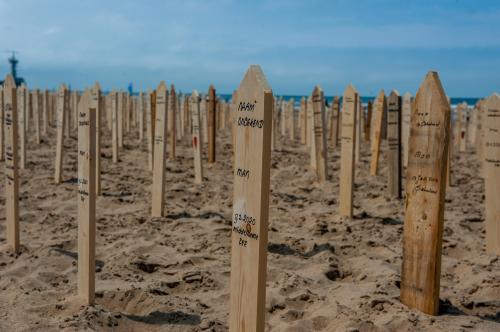
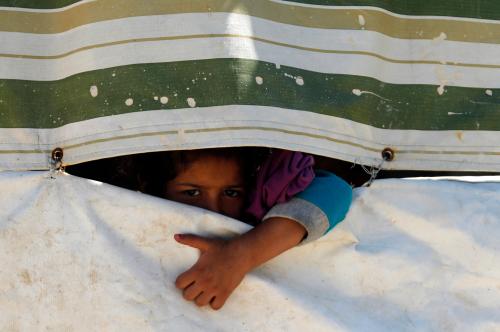
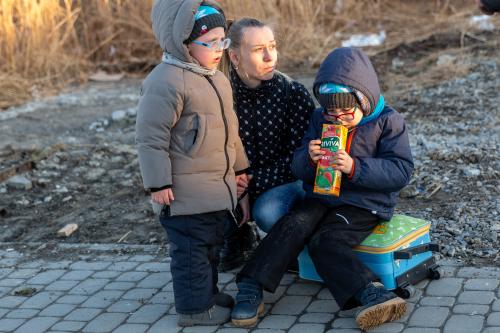
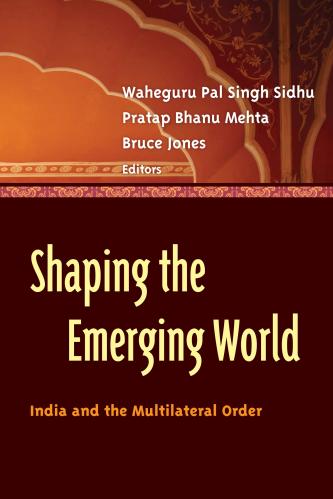

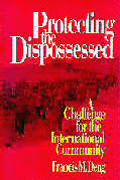


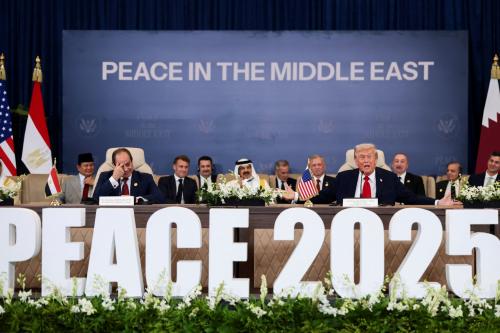
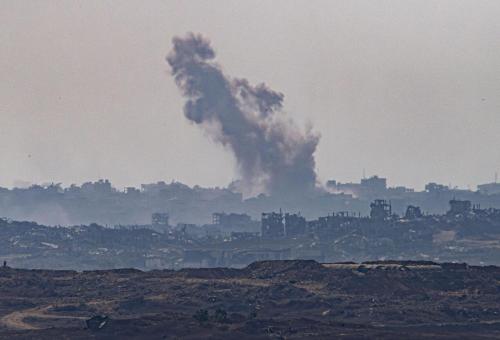
Commentary
How should Israel address African refugees?
April 6, 2018